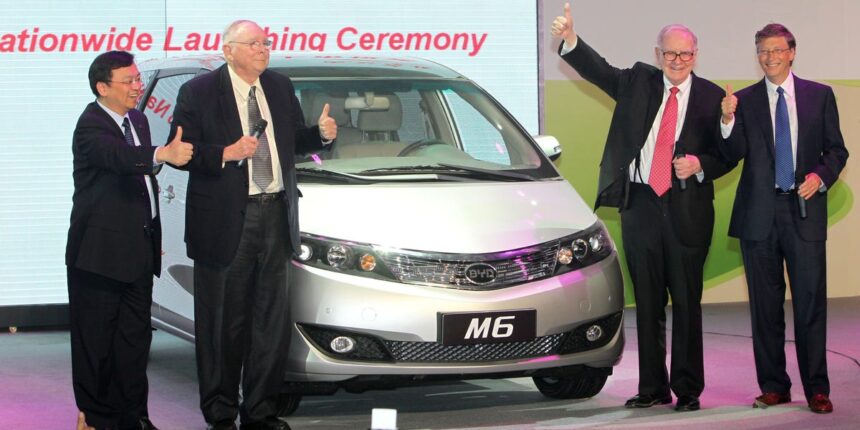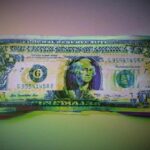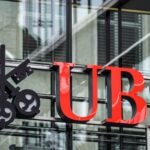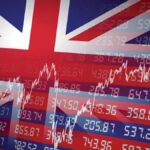Shares of BYD experienced a 3% decline in Hong Kong on Monday following reports that Berkshire Hathaway, led by legendary investor Warren Buffett, had sold its remaining stake in the Chinese electric vehicle manufacturer. Business Insider estimated that Buffett’s investment, which spanned 16 years, yielded approximately $7 billion, translating to a remarkable 30-fold return on the initial investment.
Berkshire Hathaway initially acquired its stake through the Berkshire Hathaway Energy subsidiary, which recently disclosed its exit in a first-quarter report. CNBC confirmed the departure, though requests for additional comments from Berkshire went unanswered.
The investment began in late 2008 when Berkshire paid $232 million for 225 million shares of BYD, marking its entry at just over $1 per share. At that time, this represented about 25% of BYD’s shares listed on the Hong Kong Stock Exchange, equating to 9.9% of the entire company. Since then, BYD’s stock price surged nearly 50-fold, reaching around HK$50 by March 31, the day marking the end of Berkshire’s final quarter as a shareholder. Since then, however, BYD’s shares have seen a correction, falling by 16% after adjusting for a three-for-one stock split in July.
Berkshire’s investment peaked at a staggering $9 billion in June 2022, a moment that saw Buffett and his team begin to hint at divesting their stake. This culminated in Berkshire listing its entire position on the Hong Kong Stock Exchange’s clearing system in July 2022. Throughout 14 years of holding, Buffett consistently endorsed a buy-and-hold investment philosophy.
In response to inquiries about the decision to reduce their stake in April 2023, Buffett attributed the move to the significant increase in BYD’s stock price and identified better investment opportunities elsewhere. The exit strategy evolved over time; by August 2022, Berkshire started slicing its holding significantly and had cut it by 76% by July 2024, dropping below the 5% threshold after which further sales could remain undisclosed.
Prior to the sale, BYD’s growth trajectory was remarkable. Starting at a mere valuation of under $3 billion at the time of Berkshire’s initial investment, the company’s market capitalization soared to over $130 billion. The investment is notable as both Buffett and his longtime collaborator, Charlie Munger—who passed away in November 2023—opined that BYD represented one of their most unconventional yet rewarding picks. Munger famously remarked that BYD was his greatest contribution to Berkshire, highlighting its competitiveness against Tesla in the Chinese market.
Munger’s endorsement of BYD stemmed from his admiration for founder and CEO Wang Chuanfu. When Berkshire invested, BYD had already established itself as a leading manufacturer of rechargeable lithium batteries and cellphone components, navigating the complex and capital-heavy automotive sector. Describing Wang as a blend of Thomas Edison and Jack Welch, Munger praised his ability to tackle technical challenges and execute business objectives.
BYD’s journey from a struggling tech startup to a key player in the EV space reflects a significant achievement in the world of investment, marking a noteworthy chapter in the history of Berkshire Hathaway.







